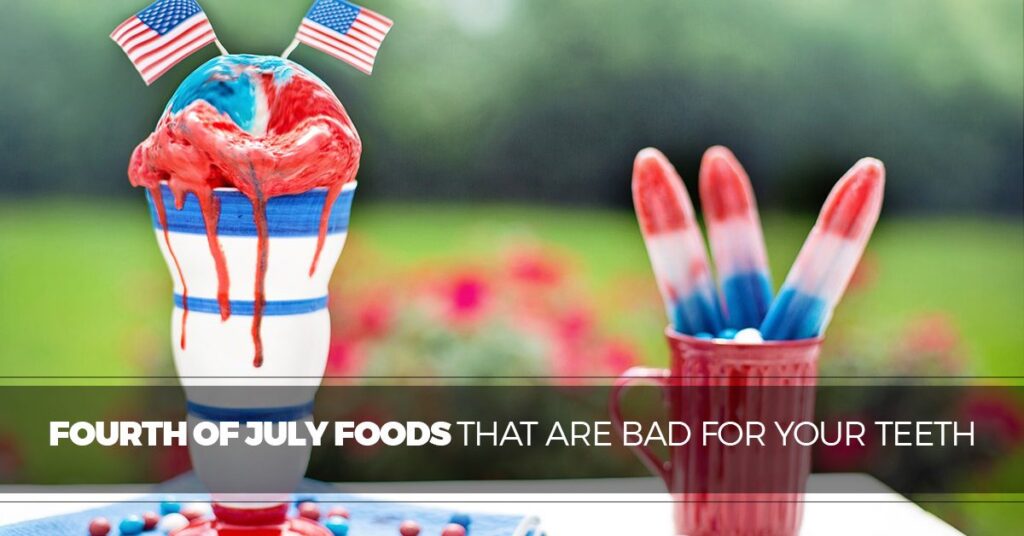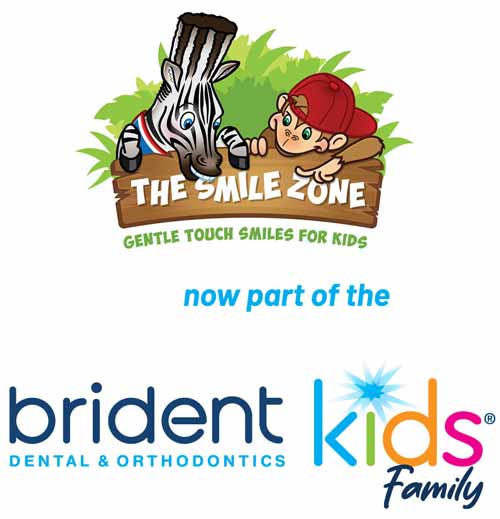STRAIGHTER TEETH AND A MORE CONFIDENT SMILE
$99 Down on Braces when you begin treatment this month
Call the office for more details. Schedule today!!!

Fourth of July Foods that are Bad for Your Teeth
Troublesome Fourth of July Foods
July fourth is coming up! This means that there will be an influx of delicious American foods being consumed over the course of a full day. Though the day is meant to celebrate our country’s independence, the day has also developed into a day of patriotic pride. The Fourth of July is about joining with your friends and family, eating, and enjoying being an American. Though this marry-making is joyous, there is trouble that lurks behind each corner. For dentists, the Fourth of July can be worrisome, especially when thinking about the amount Americans will eat during the holiday. Not all foods are the same, and all can have different effects on your teeth.
In this blog, we will discuss certain foods that will rot your teeth during this next holiday. Our hope is that by reading about the dangers of consuming certain foods you will be able to prevent cavities and other serious dental problems. Also, by avoiding these foods during your holiday, you may even become healthier.
Hot Dogs
Hot dogs are as American as… well, hot dogs. By biting into one of these delicious treats, you can be transported to the days of early America. According to the National Sausage and Hot Dog Council, Americans are expected to eat a total of 150 million hot dogs for the fourth of July. Because the hot dog is such a symbolic food of America and American culture, it is only natural that so many are eaten on the day celebrating our independence.
Though they are undeniably delicious, hot dogs are also pretty bad for your teeth. It is unfortunate, but, the bread you consume when eating a hot dog can pose huge problems for your teeth. Carbohydrates are bad for your teeth, as well as your body as a whole. The more carbs you eat, the more health concerns you can expect. When you eat the bun of a hot dog, you are essentially allowing the starches of the bread to attach themselves to your smile. The starches mixed with your saliva combines and makes a type of gooey paste. This paste can travel to the crevices of your teeth and cause cavities. Obviously, no one wants cavities. But if you continuously eat bread and pasta, you will be at an added risk. One of the best ways to prevent carbohydrate buildup is to brush after every meal. If you do not have a toothbrush at least swishing water in your mouth to at least detach some of the pieces of bread in your teeth.
If you cannot resist the urge to sink your teeth into a juicy hot dog this July, you might want to opt for a different grain of bun. For example, purchase whole wheat buns will have less added sugars and won’t pose such a threat to the quality of your smile.
Chips
Everyone likes a little crunch with their meal. In America, we love our chips! In fact, American spent over seven billion dollars on potato chips last year. Two billion more than the federal government invested in energy research and development. But why are chips bad? How did they make it on our official “bad foods list?” Well, chips are loaded with starches. Just as bread starches turn into a paste in your mouth, so does potato chips. The sugars from the starches can be broken down and invade your teeth. The bacteria in your mouth reacts to the sugars and eventually transforms into plaque. And, because you can never have just one potato chip, you make the problem exceedingly worse by eating many chips in one sitting.
Sodas
As we have stated in previous blogs, carbonated drinks are notoriously bad for your smile. No matter if it is soda pop or even ‘diet’ soda, all of them have the potential of decaying your teeth. In a recent study, it was found that drinking large quantities of soda could be as damaging to your teeth as methamphetamine and crack cocaine. Now, obviously, this study was using large qualities of carbonated drink consumption for their study, but even small amounts of soda could potentially damage your teeth.
How do carbonated drinks harm your smile?
Carbonated drinks allow plaque in your mouth to produce more acid. This acid can help attack your tooth enamel and make your teeth vulnerable to sensitivity. Because your enamel is so important in protecting your teeth, damaging the protective coat of the enamel can be problematic — especially because the enamel cannot be recreated once it is worn down.
Alcohol
Would it be the Fourth of July without a “cold one” in your hand? No! Beer, hot dogs, and chips are the foundation to any successful Independence Day. Though the sensation of cold suds going down your throat in the hot July sun is quenching and delicious, liquor is terrible for your teeth. Drinking, no matter what, is bad for you. Not only are your organs affected, but so are your teeth. When you drink alcohol, your mouth can get exceedingly dry. This dry mouth sensation means you have a lack of saliva in your mouth. Saliva prevents food from sticking to your teeth and washes away food particles. Though it is one of the main ingredients to plaque formation, it is also necessary to keep your smile looking vibrant.
One of the best ways to protect your mouth from tooth decay, gum disease, and other oral infections is by abstaining from drinking any alcohol. Due to the lack of saliva in your mouth, you are more at risk of developing dental problems. Taking liquor out of the equation will help you stay healthy. If not for your teeth, then perhaps for your liver!
Snow Cones
In July, the sun beats down on the Earth, making it one of the hottest months of the year. Due to the sweltering heat, some holiday celebrators chow down on a snow cone to cool themselves down. Snow cones are a combination of ice and flavored syrup. Together, they make the perfect summer treat to help cool your body temperature down.
Though snow cones are great for the summer heat, they aren’t good for your smile. For one, the syrup on your teeth is a sugary solution that mixes poorly with your teeth. If you are not careful, eating too many know cones can be problematic for the quality of your teeth brightness, your teeth’s enamel, and the strength of your teeth as a whole.
Ice, surprisingly enough, is also bad for your teeth. According to the American Dental Association, chewing on ice can damage your teeth’s natural enamel. Chewing on anything hard has the potential of chipping, cracking, or breaking your teeth. Snow cones are entirely made of ice, which makes them slightly dangerous to chew on. One way to solve this problem is by either making sure the ice is fully shaven before eating it, or cutting out snow cones from your diet completely.

Gentle Touch Smiles
At Gentle Touch Smiles’ dental office, you will be given the best treatment. With one visit, your local dentist can get to the bottom of your dental problems and come up with a sustainable solution. If you are currently suffering from dental issues, contacting a professional is the best course of action. If you live in Wilmington, DE, be sure to stop by Gentle Touch Smiles today for premier dental care.



